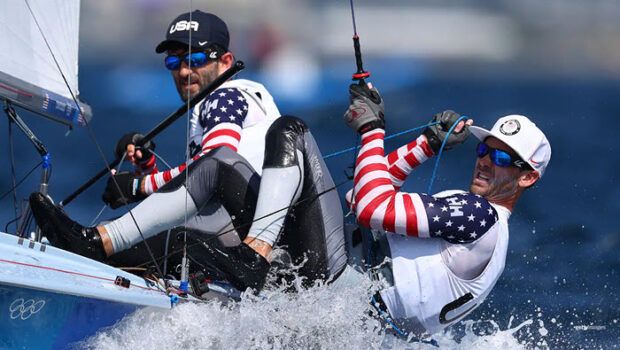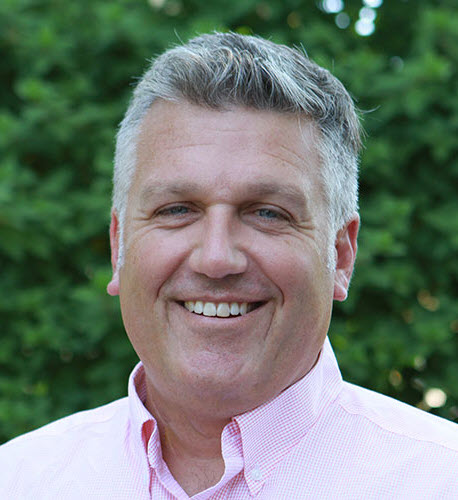Root problem for US Olympic Sailing
Published on February 25th, 2023
Dean Brenner’s involvement with the US Olympic Sailing Program began as a competitor before transitioning to a member of the Olympic Sailing Committee and then Chairman and Team Leader for the 2008 and 2012 Games. In this essay, he offers a view of the organizational landscape:
I was greatly saddened to learn of the latest round of turmoil and leadership departures from the US Olympic Sailing Program. But my sadness has nothing to do with the details of the latest breakup.
I have zero interest in the palace intrigue of the ‘who did what to whom, and when’. My sadness comes entirely from the fact that now, for the second quadrennium in a row, we are not able to put a functional program together that can even survive the four-year Olympic cycle.
Our biggest problem used to be how we might return to a place of sustained excellence on the water, which was the entire focus of the program for multiple quads from 2004 through 2016, with some admittedly mixed results.
But now, our biggest problem has deepened into utter dysfunction. We now seem unable to avoid the complete breakups of program leadership that have crippled the 2020 and 2024 programs.
The first step in solving any problem is realizing one exists, as the old cliché goes. Anyone paying attention will agree that we have a problem with US Olympic Sailing, and have for a long time. That is beyond debate at this point. But the second, and far more important, step is gaining agreement on what the problem actually is.
So, let’s spend a few minutes on that question.
If the ultimate goal is sustained excellence on the water, then there are a few things we need: great sailors, great coaches, great equipment, etc, etc. But a lack of those things isn’t our real problem. We have plenty of great sailors, coaches, and access to the equipment necessary for success in this country. It is entirely within our control to put a great team on the water, over a sustained period of time.
The deeper problem is that those ingredients all require resources… in other words, money.
You can’t attract great sailors and ask them to commit long term to Olympic Sailing, and hire great coaches, etc, without lots of resources. In order to create those resources, we need a strong and detailed business plan, that includes multiple revenue streams, powerful marketing, and a strong and consistent communications plan.
It is a noisy world out there, and capturing enough attention to raise enough resources will require a serious business plan, executed in a consistent way over an extended period of time.
But that kind of business planning and execution requires strong, consistent, leadership. (And now we are starting to get to the real root cause.) For far too long, the leadership of Olympic Sailing has been a constant carousel with a new administration nearly every four years, always armed with a “new plan.”
And a new plan that essentially starts over every four years makes it hard to create a consistent message that will capture attention, and build the kind of long-term corporate sponsorship and donor relationships that will be required for success.
This has been a problem for a long time, with one attempt made to solve for this after the 2008 Games. But the problem has now returned with three new administrations over the last three quads. And it has in fact gotten worse in the last six years. For the second Olympic cycle in a row, the entire leadership structure of the national team has imploded approximately one year before the Games.
So, let’s pause for a moment. Where are we? We want to be competitive on the water, and we believe we can be… which requires great sailors, coaches, equipment… which requires money… which requires a good business plan… which requires strong, consistent leadership. You can’t run a successful business with a constant carousel of leadership.
Are you with me so far?
But let’s go one layer deeper, because that is where I think the real root cause lies.
I have many friends who have dedicated their time and their treasure to serve within the halls of US Sailing. So, what I am about to say is not meant to criticize the organization. Nor am I writing in code and taking a certain side in the latest blowup. I assure you, I am not, and I see plenty of blame to go around in this latest dispute.
But the simple fact is that US Sailing, as a national governing body for our sport, is charged with an impossible task of trying to be too many things and serve too many masters at the same time. US Sailing runs many programs, has many initiatives, and many competing constituencies to serve, in our highly-fragmented, tiny (and shrinking) sport.
US Sailing is a member-based organization that absolutely must serve its many masters in order to keep its membership at a reasonable level. And at the same time, US Sailing has ultimate authority over a national Olympic program that has to be hyper-focused, agile and entirely performance-oriented.
The simple fact is that the two parts of US Sailing – the Olympic part, and the part that serves everything else – have completely different DNA. The goals, the mandates, the levels of urgency, the value propositions… all are entirely different.
There are examples in other sports where there are separate and distinct organizations, one of which runs the Olympic Program, and another that runs everything else. Separate organizations allow each leadership team to focus more directly on a particular mission: either to run a high-performing national team, OR to run a member-based organization that serves the grass roots of the sport. But not both at the same time.
At the root, we therefore have a structural problem, where the current organization, well-intentioned as it certainly may be, is tasked with an impossibly broad set of requirements. And as long as the leadership of Olympic Sailing is governed by a rotating board of volunteers that have many other constituencies and goals, then we will continue to have this same carousel of Olympic leadership, the same inconsistent business planning, the same lack of consistent resources, and the same lack of performance on the water.
It is time to come back to a conversation that has started and stopped many times in recent years, often quietly and in the shadows.
If we want to have a successful Olympic Sailing Program, we need to separate our sport into two organizations. One that runs Olympic Sailing, and one that runs everything else. Once we solve for that problem, we can begin solving for the others. But until we take that step, we will continue to see the same level of inconsistency, under-performance and massive dysfunction.
Respectfully,
Dean M. Brenner
Wallingford, CT
Background: Dean has been directly involved with the US Olympic Sailing Program, in many capacities, since 1995. He finished 2nd at the 2000 Trials with Ed Baird and Tom Burnham in the Soling Class; was a member of the Olympic Sailing Committee for the 2004 games; was Chairman and Team Leader for the 2008 and 2012 Games; and was an occasional, behind-the-scenes advisor for the 2016 Games. He sat on the Board of Directors for US Sailing from 2000-2012, and helped run the Sailing Foundation of New York, a major donor to Olympic Sailing, for nearly a decade. Since 2016, Dean has maintained a healthy distance from Olympic Sailing, but remains in touch with several members of the program, both athletes and staff.
Paris 2024 Olympic Sailing Program:
Men’s One Person Dinghy – ILCA 7
Women’s One Person Dinghy – ILCA 6
Mixed Two Person Dinghy – 470
Men’s Skiff – 49er
Women’s Skiff – 49erFx
Men’s Kiteboard – Formula Kite Class
Women’s Kiteboard – Formula Kite Class
Men’s Windsurfing – iQFoil
Women’s Windsurfing – iQFoil
Mixed Multihull – Nacra 17
Venue: Marseille, France
Dates: July 26-August 11
Details: https://www.paris2024.org/en/the-olympic-games-paris-2024/










 We’ll keep your information safe.
We’ll keep your information safe.